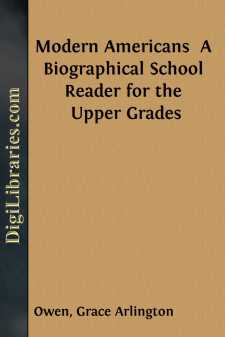Categories
- Antiques & Collectibles 13
- Architecture 36
- Art 48
- Bibles 22
- Biography & Autobiography 815
- Body, Mind & Spirit 144
- Business & Economics 28
- Children's Books 18
- Children's Fiction 14
- Computers 4
- Cooking 94
- Crafts & Hobbies 4
- Drama 346
- Education 58
- Family & Relationships 59
- Fiction 11833
- Games 19
- Gardening 17
- Health & Fitness 34
- History 1378
- House & Home 1
- Humor 147
- Juvenile Fiction 1873
- Juvenile Nonfiction 202
- Language Arts & Disciplines 89
- Law 16
- Literary Collections 686
- Literary Criticism 179
- Mathematics 13
- Medical 41
- Music 40
- Nature 179
- Non-Classifiable 1768
- Performing Arts 7
- Periodicals 1453
- Philosophy 65
- Photography 2
- Poetry 896
- Political Science 203
- Psychology 44
- Reference 154
- Religion 515
- Science 126
- Self-Help 85
- Social Science 82
- Sports & Recreation 34
- Study Aids 3
- Technology & Engineering 59
- Transportation 23
- Travel 463
- True Crime 29
Our website is made possible by displaying online advertisements to our visitors.
Please consider supporting us by disabling your ad blocker.
Modern Americans A Biographical School Reader for the Upper Grades
Categories:
Description:
Excerpt
INTRODUCTION
“Tell us about real folks.” This is the request that comes to us again and again from children in the upper grades. In response to this appeal, the authors, in preparing “Modern Americans,” have attempted to give the pupils the worth-while things they like to read rather than the things adults think they ought to like.
Those who have taught reading very long agree that the old-time hero stories have always had a peculiar charm for pupils. But all the heroes did not live in olden times; they are with us today. Why, then, isn’t it well to acquaint the children with present-day heroes? Young people in the upper grades are especially interested in the men and women who are actually doing things. They desire to study in school the persons they read about in the daily papers. Elihu Root recently said: “It seems sometimes as if our people were interested in nothing but personalities.”
To bridge the gap between our schools and practical everyday life has become one of the chief concerns of the wide-awake teacher. Accordingly, in geography we are studying the industries about us. In English, civics, and history we are devoting an increasing amount of time to a consideration of “Current Events.” All this is in the right direction; for, to create an interest in the men and women of the hour and the social activities of the day makes for an intelligent citizenship. “Acquaint the people with the great men of any period and you have taught them the history of the period,” says Carlyle. Know the past, if possible; know the present by all means.
At first thought the reader may disagree with the authors in the list of characters chosen. He may think that many of America’s greatest men and women have been omitted while others of less importance have been given a place. In reply permit us to say that greatness of achievement has not been the only consideration in choosing the character studies. Not all great men and women have life stories that appeal to children, and unless the stories do appeal, it is better to omit them until the children are older. Then, too, it seemed desirable to select persons in various fields of human activity, thus broadening the scope of the child’s knowledge.
The reader will observe that we have placed much stress upon the childhood experiences of the men and women studied, for the reason that children are to read the stories; and since they are sure to interpret what they read in terms of their own experiences, we must, as far as possible, record experiences that are common to all, namely, childhood experiences.
It is hoped that these stories have been so brought within the experiences of the pupils that they will be led to discuss them. Many of the stories were tried out with children in the University Training School and the enthusiastic discussions that followed were both interesting and helpful.
Lastly, and most important, the authors have attempted to inspire the pupils with a purpose to make the most of themselves....


